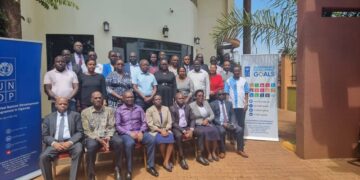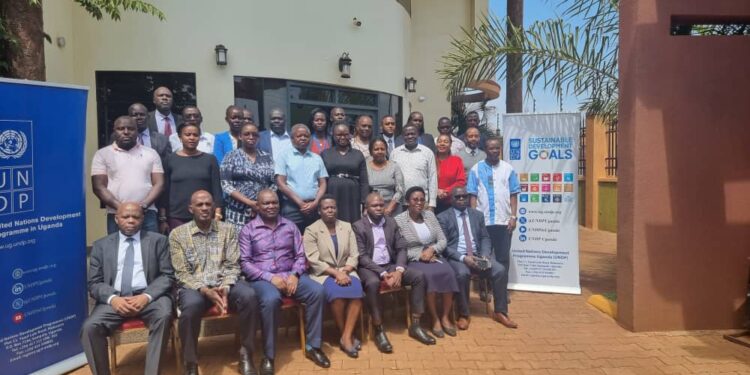Busia – Uganda and Kenya have taken a significant step toward strengthening cross-border collaboration and building climate resilience with the successful conclusion of the inaugural Uganda-Kenya Joint Meeting on Urban Resilience.
Held from June 3–5, 2025, in Busia, Uganda, the three-day summit was convened with the support of the United Nations Development Programme (UNDP) and funding from the Republic of Korea, the Kingdom of Luxembourg, and the Kingdom of Denmark.
The meeting brought together high-level delegations from both countries to address the mounting challenges posed by climate change and urban disaster risks affecting the municipalities of Busia. It marked a milestone in regional cooperation and environmental diplomacy.
Strengthening Regional Partnerships
The joint meeting was co-led by Ambassador Eunice Kigenyi, Deputy Head of Mission and Chargé d’Affaires at the Uganda High Commission in Nairobi, and Mr Joel Wamalwa, CEO of the Lake Victoria North Water Works Development Agency, representing Kenya.

Uganda’s multi-sectoral delegation included representatives from the Uganda High Commission in Nairobi and key ministries including Foreign Affairs, Works and Transport, Local Government, Water and Environment, and Health. Busia Municipality was represented by its Resident District Commissioner (RDC), Member of Parliament, Mayor, Town Clerk, Speaker, and staff.
Kenya’s delegation similarly reflected strong inter-ministerial coordination, with officials drawn from the Ministries of Water, Interior, and Foreign and Diaspora Affairs.
Addressing Shared Climate Vulnerabilities
In his opening remarks, Mr. Fenard M. Katunda, Town Clerk of Busia Municipality (Uganda), emphasised the region’s growing vulnerability to climate-induced disasters. He cited rapid urbanisation, deforestation, and encroachment on wetlands as key drivers of recurring flooding and infrastructure strain.
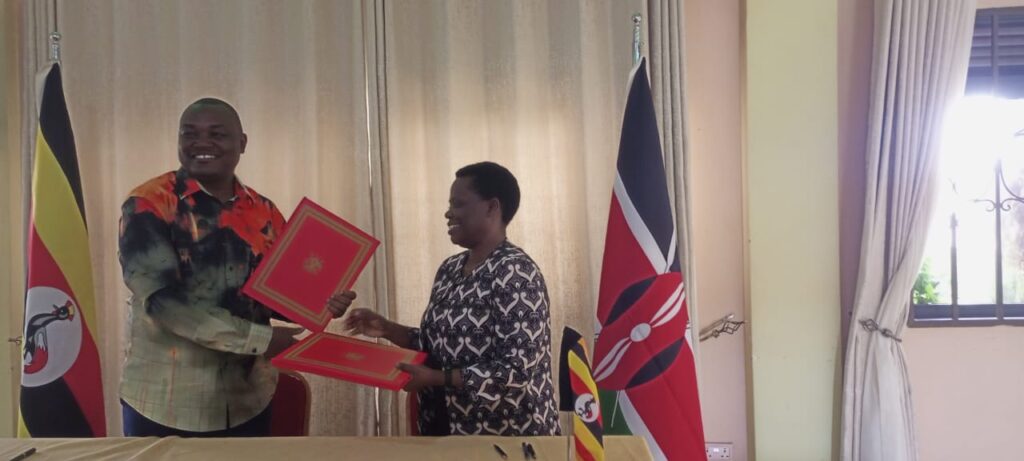
He noted that these impacts are exacerbated by poor waste management systems, inadequate stormwater infrastructure, and limited public awareness. “There is a need to harmonise our cross-border policies and strengthen institutional coordination to safeguard lives, livelihoods, and ecosystems,” Mr Katunda said.
Key Challenges Identified
The joint discussions surfaced a range of pressing issues faced by both sides of the border, including: frequent flooding caused by inadequate drainage systems, environmental degradation, particularly wetland loss and deforestation, increased public health risks, including outbreaks of cholera and typhoid, economic disruptions impacting trade and infrastructure, insufficient early warning systems and disaster preparedness and weak enforcement of environmental regulations.
A United Vision for Resilience
Reaffirming the urgency of joint action, His Worship Mr. Amin Sadik Agele, Mayor of Busia Municipality, Uganda, emphasised the need for integrated approaches to climate adaptation. “The challenges we face do not respect borders. Our response must be as unified as the threats are shared,” he said.
Assistant Resident District Commissioner Mr Kisuyi Abdul Nasser called for the development of joint Standard Operating Procedures (SOPs) and a regional action plan built on community participation.
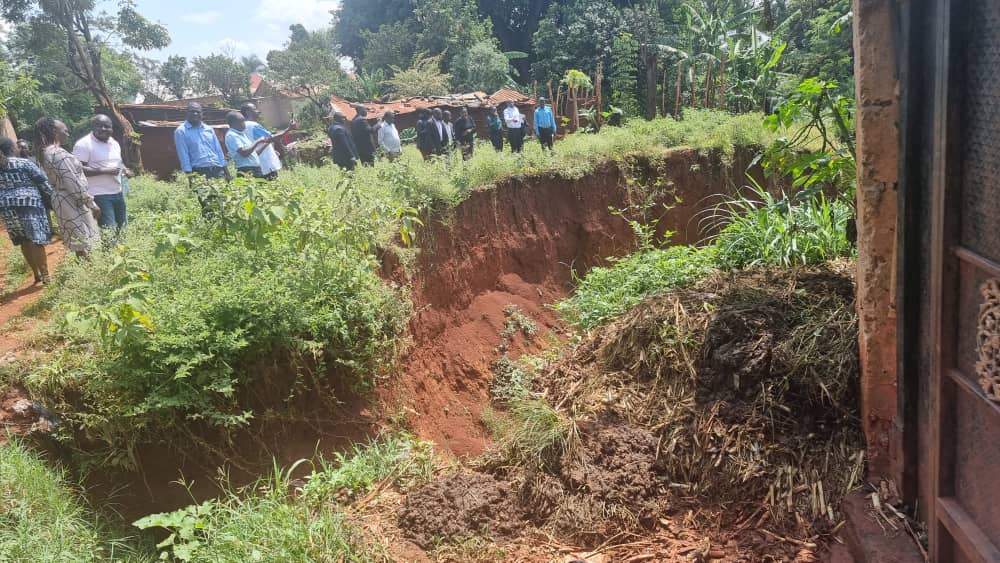
Diplomacy as a Tool for Solutions
Ambassador Kigenyi commended the collaborative spirit of the meeting and Kenya’s mobilisation of a multi-sectoral team. She noted that Uganda’s inclusive delegation signalled a strong, coordinated national response.
“In the past, efforts were often limited by fragmentation and funding gaps. This joint platform—supported by UNDP and our development partners—provides a renewed path toward building resilience,” she said.
She further underscored the importance of leveraging existing frameworks such as the Uganda-Kenya Joint Ministerial Commission (JMC) to deepen coordination.
Representing Kenya, Mr Joel Wamalwa expressed appreciation for Uganda’s hospitality and reaffirmed Kenya’s commitment to a sustainable and climate-resilient future for the greater Busia region.
UNDP Deputy Resident Representative for Uganda, Mr Ian King, expressed gratitude to development partners—the Republic of Korea, Luxembourg, and Denmark—for their critical support. He noted that the project was catalysed through engagements with Hon. John Mulimba, Minister of State for Foreign Affairs (Regional Affairs).
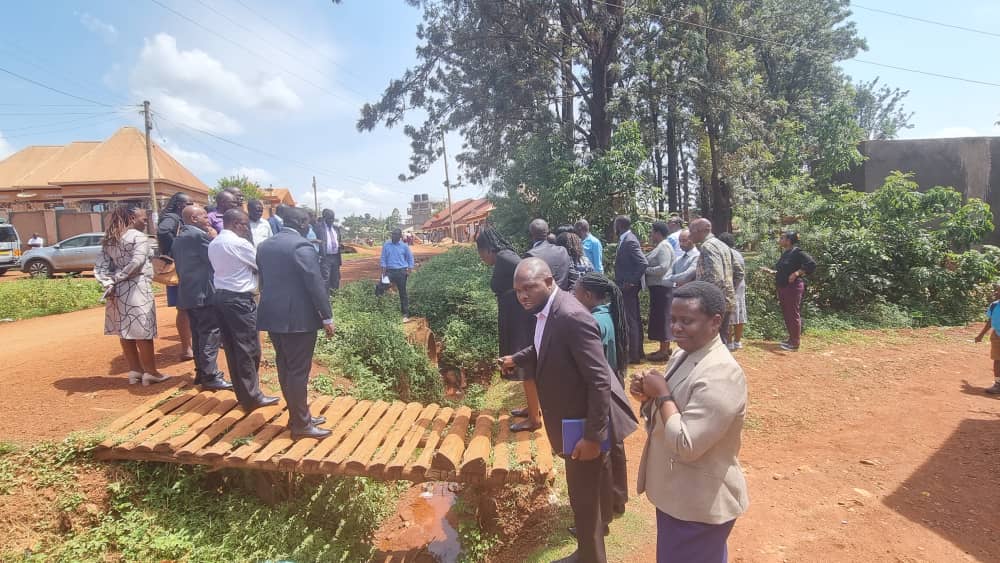
The Way Forward
The meeting concluded with a strong mutual commitment to: develop a comprehensive cross-border urban resilience strategy, harmonise urban planning and environmental policies and mobilise technical and financial partnerships to implement climate adaptation and disaster risk reduction projects.
Both delegations also agreed to institutionalise this bilateral engagement as an annual platform to review progress, exchange best practices, and strengthen ongoing collaboration.
This landmark initiative represents a shared vision for a more resilient, sustainable, and cooperative future between Uganda and Kenya, where cross-border communities are better prepared to face the growing threats of climate change and urban vulnerabilities.
